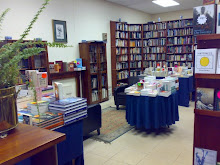Twilight of the feet of the Idols
No hero is ever safe from being felled by his/her past. I discovered this when the story broke that Gunther Grass had served in the Waffen-SS. I, and others, had believed him when he claimed that he did not fight in the war, and subsequently found his anti-nazi stance strenghtened by the courage of his convictions. In his old age he admitted that he had lied about it. What a quandry for his supporters. He was, and I suppose still is, despite the evidence of his feet of clay, a hero of mine. I have always loved his books. Loved the effort it took to read them, loved the reward they heaped on the reader if s/he persisted. The Flounder, I thought, was a masterpiece. It took me a long time to come to terms with the fact that as an author he could stand apart from that which he had created and that his mis/deeds did not necessarily detract from the value of his work. It made me wander into the minefield that is post-modernism. Can an author be divorced from his work? Can a text stand alone? Can a work of art be intereted without refering to its creator? I did not wander far into that field before I lost some intellectual limbs and decided to retreat. Easier to understand it in terms of humans and what it means to be human. As the Romans said, I thought pompously: Errare humanum est.
Indeed. Thus can one admire the books though the author be flawed. Some may even argue that all authors are flawed and, further, needs to be so in order to create something worthwhile. If one is not familiar with moral ambiguities, after all, how on earth could one explore those? In order to write, to tell stories of humans about human experience, one must be human, no? One must be subject to the same glories and failings, surely? Simplistic, I grant you, but it made me sleep at night.
Then the latest shock nearly felled me. It involved another hero, a collossus of letters, a genius of literature, Milan Kundera, as vocal an opponent of communism as Grass has always been of nazism.
Kundera, it was alleged, denounced a Western spy to the Czechoslovak police when he was a student. It seems that he reported Miroslav Dvoracek after he visited a female friend of Kundera’s at her student quarters in 1950. The spy was arrested and spent 14 years incarcerated.
Alas and alack, my wailing was pitiful to behold. Not only was Kundera a traitor to his conscience, but lay revealed now as suffering from that most human of failing, jealousy. Something, ironically, he explored at length in The Unbearable Lightness of Being. Shopping somebody for an ideal or belief one can forgive, but for a woman? No, that was just beyond the pale.
That being said, I am still a lover of his books.
Even after discovering that my heroes are human, that they suffer the foibles the rest of us do, their books are still good. It was Breytren Breytenbach, after all, who pointed out that it was foolish to expect consistent political thought from a writer. They, and we, change, and we change our minds. We are fallible.
The value of their books is undiminshed, maybe slightly tarnished, spotted with their failings. Perhaps they are still the stars they were before, (to stretch a metaphor to breaking point) but somewhat farther away. Space and time dimming their light somewhat.
But it was difficult to make the transistion, to come to that realisation.
Perhaps nothing really is so difficult as predicting the past.
Subscribe to:
Post Comments (Atom)

No comments:
Post a Comment